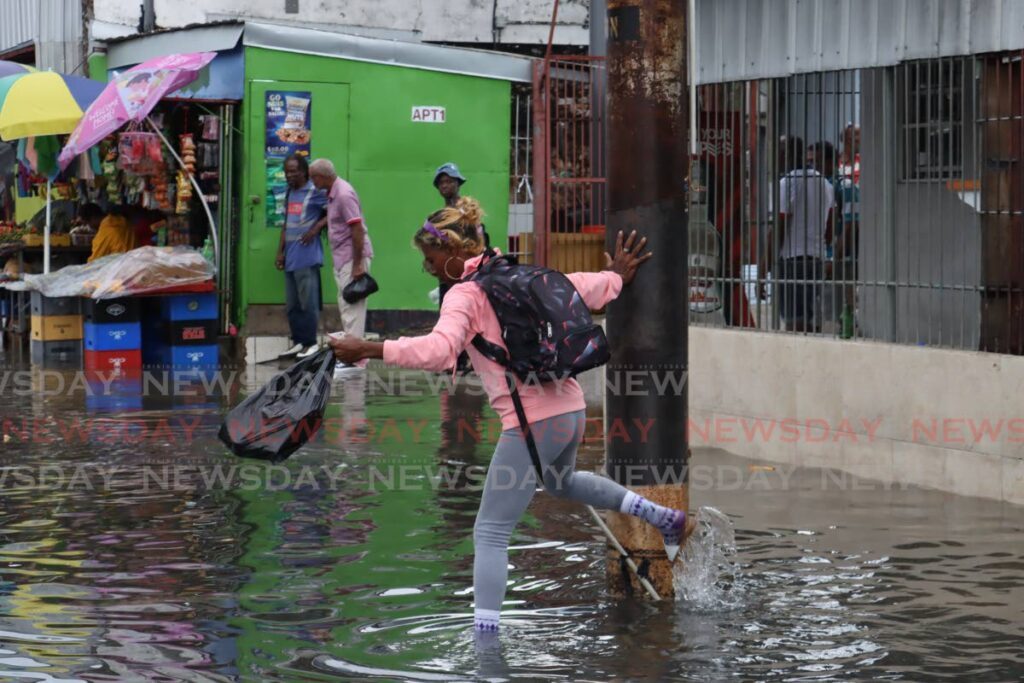Ministry, regional corporations 'ready for natural disasters'

ALL 14 regional corporations are prepared for natural disasters, said Jerry Davis, senior disaster management co-ordinator at the Ministry of Rural Development and Local Government, in a phone interview on June 27.
This comes as the TT Meteorological Service and US National Hurricane Center (NHC) are monitoring an area of low pressure near the central Tropical Atlantic.
The Met Office said, "The initial outlook for TT is for cloudy skies with showers and a medium-high chance of thunderstorm activity by July 1."
In a statement on June 28 at 2pm, it said, "The area of active weather associated with the low was centred near 40W longitude (near 2250 km), east-southeast of the southern Windward Islands."
On June 26 the Met Office had said, "This wave is exhibiting moderate to strong vorticity (twisting motion in the air) in the low to medium level, and analysis, together with numerical model projections, is showing that over the next few days the possibility for some intensification exists."
On June 28 at 2pm the NHC increased the likelihood of formation to a near 100 per cent chance of its becoming into a tropical depression over the next 24 hours and a near 100 per cent chance of development over the next seven days.
But, it said, "At this time, the system poses no direct threat to TT."
The first storm of the 2024 Atlantic Hurricane Season, Alberto, made landfall in Mexico on June 20. The next named storm will be called Beryl.
Davis said all the regional corporations, with assistance from the ministry, are prepared to handle flooding, hurricanes and other natural disasters.
"There are 14 disaster management units in the regional corporations, who work together with the councils and administration of the corporation to put together disaster risk reduction plans and measures...
"The clearing of water courses is one example – the ministry took proactive methods to assists corporations by acquiring two backhoes, two excavators, a truck and equipment. An excavator has been in the Penal/Debe Corporation for the last two weeks, assisting in clearing water courses. It was also in the Siparia Regional Corporation doing the same thing, two weeks earlier."
Davis added the corporations and the ministry are equipped with sandbags, mattresses, hurricane straps and tarpaulins.
"Remember, this is not an inexhaustible supply.
"All 14 regional corporations have these and the ministry has contingency equipment that can be used as well to help."
Davis urged those living in "vulnerable communities" to seek the necessary help.
"If you live in a vulnerable community and you need to get sandbags, go to the regional corporation."
Davis said the ministry's website also has the list of shelters available. He sent Newsday the link via WhatsApp, which showed there were shelters across the country.
Davis also sent a press release outlining what people can and should do before, during and after a hurricane.
Before, during and after a hurricane:
Before – Create an emergency plan (safe room, evacuation routes, ensuring family knows the plan), building an emergency kit (non-perishable food, medication, first-aid supplies), secure your home (instal storm shutters or board up windows, trim trees and reduce debris) and stay informed (monitor local weather updates and follow instructions from local authories).
During – Stay indoors (away from windows and doors), use the safe room (a designated room that a family can use to protect themselves, which has emergency supplies for 72 hours), avoid floodwaters (do not walk, swim or drive through floodwater) and keep communications open (use phones in emergencies only and let family members know you're safe).
After – Wait for official all-clear (wait for authorities to say it is safe), inspect your home (check for structural damage and avoid using electronics if there's water damage), avoid floodwater hazards (beware of debris, downed power lines and contaminated water) and seek help if needed (contact local emergency services – Office of Disaster Preparedness Management, regional corporations).

Comments
"Ministry, regional corporations ‘ready for natural disasters’"